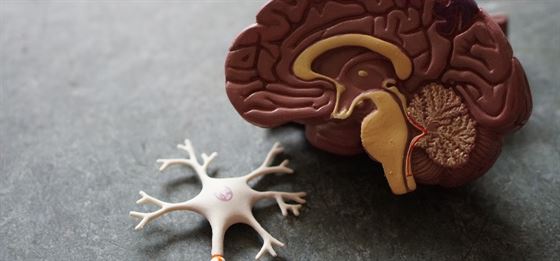
Forgiveness can be Healing

Forgiveness is not easy as it often requires us to confront our own hurt and pain. However, forgiveness is also one of the most rewarding and liberating things you can do for yourself. When you forgive, you let go of grudges and bitterness and open yourself up to healing and peace. Forgiving someone doesn't mean what they did was okay. It just means you are choosing to let go of the anger and resentment you are feeling.
What is Forgiveness?
Forgiveness is defined as “a conscious, deliberate decision to release feelings of resentment or vengeance, regardless of whether the person/s deserves your forgiveness.” It is often described as a “gift” you can give yourself.
7 Tips to Forgive Someone
Letting go of anger and resentment can be hard, but it is also worth it. If you are struggling to forgive someone, here are seven tips that will help you.
1. Acknowledge Your Hurt and Pain
Don't try to push away or bottle up your feelings. Recognizing and acknowledging your feelings is an important first step in the forgiveness process. Try to be as specific as possible when you are identifying your hurt feelings. For example, instead of saying “I am hurt, they lied to me,” try to pinpoint the exact lie that was told and how it made you feel.
2. Don’t Dwell on the Past
Once you have acknowledged your feelings, it's important to move on from them. Don't dwell on what happened or keep rehashing the details in your mind. This will only make it harder for you to forgive and could even lead to resentment or bitterness.
3. Try to Focus on the Present
Everyone makes mistakes, after all, we are only human. It is important to understand everyone deserves a second chance. Focussing on the present can help you remember that the person you are struggling to forgive is just as fallible as you are. Being mindful of this can make it easier to let go of your anger.
4. Empathize With the Other Person
Try to understand why the other person acted the way they did. Maybe they were going through a tough time in their life or maybe they made a mistake without realizing it. Whatever the reason, try to see things from their perspective. Empathizing with someone doesn't mean you condone their actions. It just means you are trying to understand where they are coming from.
5. Commit to Forgiveness
Practising small acts of forgiveness can help you to commit to forgiveness in general. Forgive someone for being late, forgive yourself for making a mistake and so on. These small acts can help to train your brain to focus on forgiveness instead of holding on to grudges or seeking vengeance.
6. Choose Forgiveness
Forgiving someone is a choice. It's not always easy, but it is always worth it. The freedom and peace which comes from forgiveness is worth the effort. So, if you are struggling to forgive someone, don't give up. Keep working at it and eventually, you will get there.
7. Practice REACH
REACH is a five-step process which can help you work through your feelings and ultimately forgive someone. It stands for:
R – Recognize, recall and visualize the hurt or betrayal
E – Empathize with the other person
A – Altruism or looking at forgiveness as a gift
C – Commit to forgiveness
H – Hold on to your choice to forgive and move on
The 20-Step Forgiveness Process Model or the Enright Forgiveness Process Model and the Nine Steps to Forgiveness are two other popular forgiveness models. Both of these models involve working through your feelings and thoughts about the hurt or betrayal.
7 Benefits of Forgiving Someone
Research has found women are generally more forgiving than men. 54% of women scored high in forgiveness compared to 49% of men. Additionally, 48% of women reported they actively sought forgiveness from others against 37% of men. Trials and observational studies reveal forgiveness is associated with life satisfaction, higher self-esteem and reduced anxiety, depression, hostility and even substance abuse. It is clear forgiveness has the power to transform our lives in so many ways. Here are seven benefits of forgiving someone:
1. Inner Peace
You will experience a sense of calmness and peace when you forgive someone. Resentment, anger and bitterness are replaced by serenity and tranquillity.
2. Reduces Stress
When you forgive, your bodies can relax and let go of the tension that came with holding onto anger.
3. Improve Mental and Physical Health
Forgiveness has been linked with decreased anxiety and depression, lower blood pressure and a stronger immune system. Healing from the past can lead to a healthier present and future.
4. Reconciliation
The act of forgiveness can help repair relationships. You may even be able to develop a stronger relationship with the person you forgave.
5. Personal Growth
Forgiveness takes courage and strength.Personal growth and development often come as a result of forgiving someone. It makes you realize what you're capable of and gives you a sense of empowerment.
6. Makes You Happy
When you forgive a person, you are no longer bogged down by negative emotions. This can lead to a more positive outlook on life and increased happiness.
7. Reduced Mortality
A study done by the University of Wisconsin found people who forgave others were less prone to illnesses. They also had lower rates of mortality.
Forgiving someone is not easy, but it is always worth it. If you are struggling to forgive someone, remember it's a process. It's a choice you make and it has the power to transform your life in so many ways. So, don't give up. Keep working at it and eventually, you will get there.
Articles
Build your awareness and get inspired with our researched articles on how you can strengthen your well-being
Popular Topics
An OTP has been sent to the email address
provided.
Please check your Inbox and Spam folders.

What Would You Like to Speak with a Specialist About?
Mental Fitness Journey starts Now!
Chearful Connects you with Top-tier Qualified Wellness specialists for the Price of a cup of Coffee!

Next Steps
- A Client Team member will reach out to you to schedule a session with the most suitable specialist.
- You will receive an email with a 10% Discount Code* for your 1st session.
- We invite you to Explore the Platform & Sign Up today! *Upto a maximum of $10 discount on a session purchased




 2960 Read
2960 Read



.jpg)







.png)

.jpg)

.jpg)




.jpg)































.jpg)

.jpg)


























